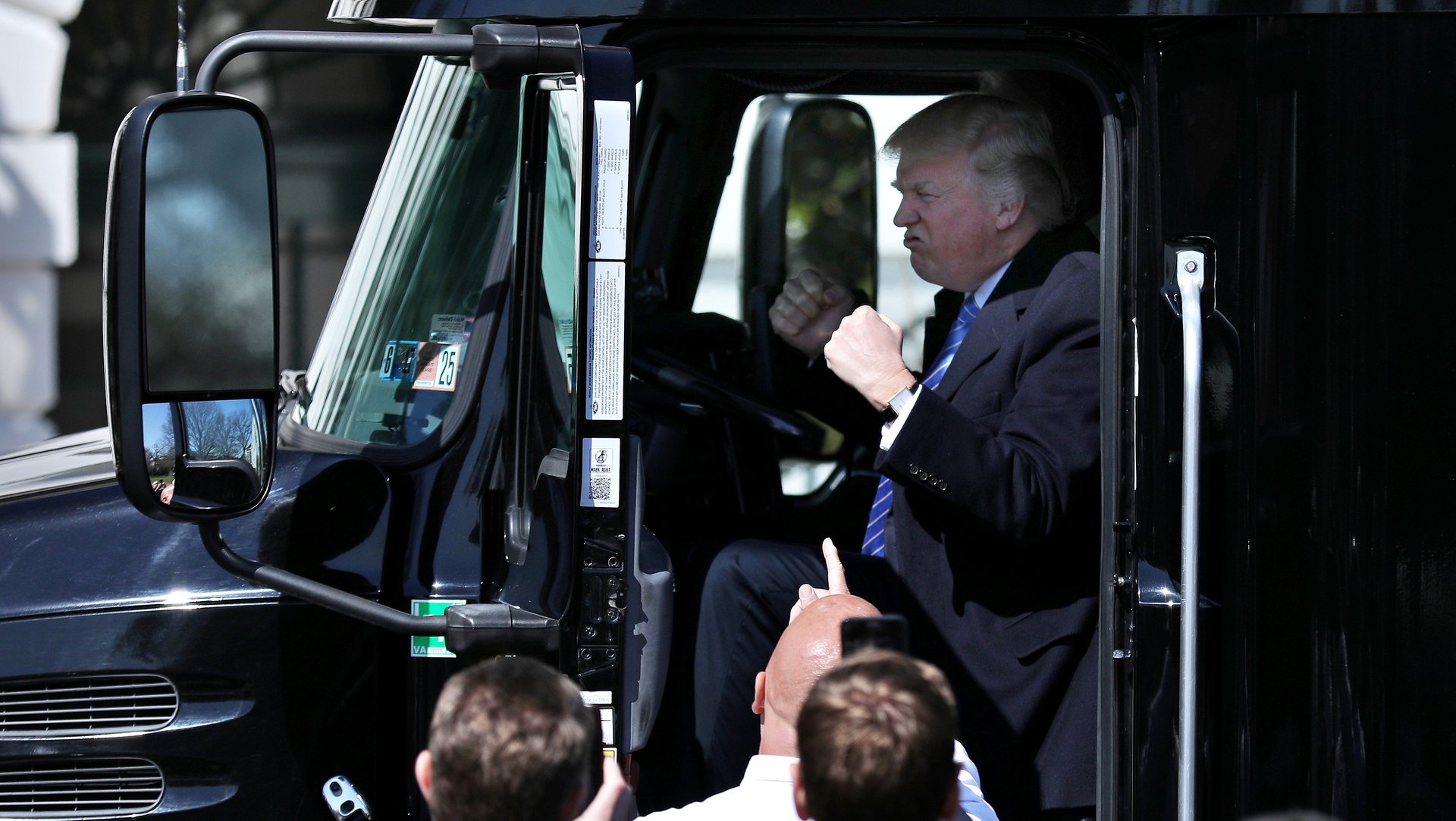Donald Trump has failed his first big test as salesman-in-chief
Updated March 24 at 9:30am EDT


Updated March 24 at 9:30am EDT
The US House of Representatives postponed voting Thursday (March 23) on the American Health Care Act, the bill that would repeal the Affordable Care Act, a.k.a. Obamacare. The Trump administration couldn’t muster the votes to make it pass. The vote had been carefully scheduled for the seventh anniversary of Obamacare’s signing into law. The vote is rescheduled for today, but it is still unclear whether it has the votes to pass.
The bill was the first major piece of legislation to be backed by the Donald Trump White House, and the president has spent the past two weeks trying to sell it to Republicans in Congress. He met with representatives individually and in groups, held bowling nights at the White House, threatened and cajoled, and until today, seemed confident it would get done.
“We’re doing it piece by piece, member by member,” White House press secretary Sean Spicer said March 22. Trump “is the closer, absolutely,” he said. Trump has often described his role as president as the rally-leader and salesman, indicating that particulars of policy and administration would be left to advisors.
When the news broke, Trump was speaking to truck drivers who had brought an 18-wheeler on to the White House grounds, resulting in an unfortunate jarring juxtaposition:
Nearly any health-care repeal bill would have been a hard sell to the US Congress right now, for Trump or any other Republican. While the party leads in both houses, it is divided between Tea Party politicians (the Freedom Caucus) who wanted the bill completely repealed because they want lower taxes and less government, and more traditional Republicans who were worried that their older voter base would be worse off if the bill passed. It would have taken 216 votes to pass, and was estimated at between five and ten votes short.
The act, which was drafted by speaker of the House Paul Ryan, was also almost universally despised for its expected impact, and how hastily Ryan and Trump were trying to move it through Congress. A Quinnipiac University poll published March 23 found 56% of American voters opposed the new bill as against 17% in favor (with 26% undecided), and even Republican voters opposed it by 41% to 24%.
It would have pulled 24 million people off of insurance, raised premiums over time, and cost older, poorer Americans much more than they are paying now, while giving billions in tax breaks to the country’s wealthiest and insurance companies. Some critics described it as a “transfer of wealth” between older, poorer Americans to the country’s richest.
Late on March 23, the Congressional Budget Office released a new score for the bill, after Ryan made last-minute revisions to try to pass it. It will still throw the same number of people off of insurance, the CBO said, but cost the government more than $150 billion more.
Correction: An earlier version of this story inadvertently titled the bill the “Alternative Health Care Act.”